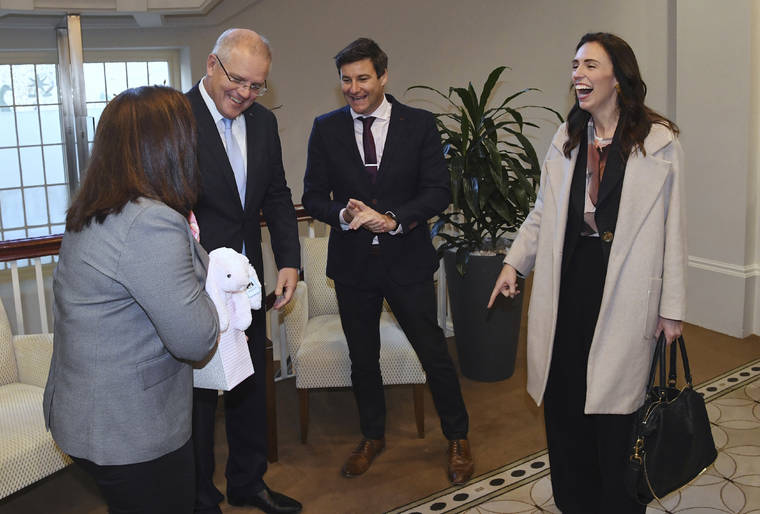MELBOURNE, Australia — The United States is losing interest in the Asia-Pacific region, New Zealand’s prime minister said on Friday, as concerns grow about China’s expanding influence.
Prime Minister Jacinda Ardern spoke in Melbourne where she met with her Australian counterpart Scott Morrison to discuss regional cooperation.
“There has been a view that in the past few years at least, perhaps there has not been the same level of attention from the United States within our region. And that is something that both New Zealand and Australia have been raising publicly,” Ardern told reporters.
Ardern’s comments come as New Zealand pushes for a free-trade deal with the United States and has shown concern about the rising influence of China in the Pacific.
Earlier this week, New Zealand’s Deputy Prime Minister Winston Peters made the pitch for a U.S.-New Zealand trade deal during a speech in Washington. He said New Zealand had a “real concern” about the lack of U.S. trade agreements in the Indo-Pacific region. Australia has had a free trade pact with the United States since 2005. Some see that deal as Australia’s reward for committing combat troops to the U.S.-led invasion of Iraq in 2003.
Peters said that while China has had staggering economic growth and most countries in Asia have been negotiating free-trade deals, the U.S. has been largely absent.
Last year, New Zealand announced it planned to spend an extra $500 million in aid over four years with most of it directed at the Pacific as concerns rise about China’s influence.
The United States joined with Japan and Australia in November in a new infrastructure investment agreement for the region.
Ardern earlier this week took an unusually strident tone in condemning President Donald Trump’s attack on four U.S. congresswomen, whom Trump said should “go back” to their native or ancestral countries if they were unhappy in the U.S.
“Usually, I don’t get into other people’s politics, but it will be clear to most people that I completely and utterly disagree with him,” Ardern told Radio New Zealand.
Ardern said she is proud that a range of cultures and ethnicities are represented in New Zealand’s parliament.
China’s influence will be on Australia’s agenda next week when Morrison hosts the new leader of the nation’s nearest neighbor, Papua New Guinea Prime Minister James Marape.
The United States and Australia committed to redevelop a Papua New Guinea naval base on Manus Island in an agreement with the previous prime minister, prompting China to cautioned again “Cold War” thinking. China reportedly wants to establish a naval base in the South Pacific.
The United States is expanding its Marine Corps training hub in the northern Australian city of Darwin — 1,600 kilometers (1,000 miles) southwest of the Papua New Guinea capital Port Moresby — as part of its strategic pivot to Asia.
The U.S. ambassador to Australia, Arthur Culvahouse Jr., calls China’s lending in the Pacific “payday loan diplomacy.”


